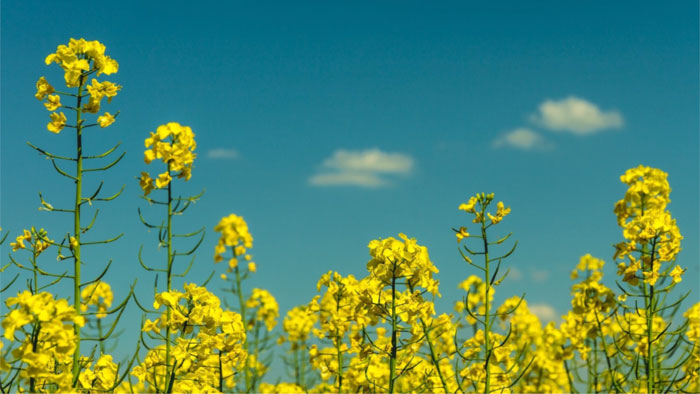You are here
- Home
- Research
- Projects
- Ibali
- Knowledge Hub
- Ethnography off the record: Moments of Being
Ethnography off the record: Moments of Being
15 November 2022
by Katherine Collins

The moment I first thought about ethnography and moments, I was making what you might call a field note. Technically, I wasn’t in the field; I was in a room in the Stuart Hall building on the Open University’s main campus. A colleague was describing a moment of miscommunication that turned out to have great significance. This is part of the note I wrote:
"…the word moment attracted my attention because it captures how split second our decisions are. We are just humans in those moments. You never know when something will be interpreted in unexpected ways."
When I thought about writing this reflection on ethnography as moments a different quotation came to mind: "Life is a collection of moments. This is one of them". As I recalled it, this line is well-known, and it’s ironic. It mocks the genre of inspirational memes that exhort people to treasure their moments, take joy in the everyday and – or perhaps this is just me – underscores the passing of time, causes one to be seized by inadequacy and a sense one is failing to wring worthy experiences out of every instant.
That’ll be a good epigraph for this piece, I thought. It will draw attention to this interesting, provocative discordance: that while ethnographic research tries to capture events in granular detail, most of life is just moment-to-moment forgettable. But when I googled the phrase, I couldn’t find the one I remembered; instead, all that came up were examples of the oppressively earnest variety. Maybe Charlie Sheen said it? He said something like it, but his version doesn’t have quite the flavour of irony I recalled, that I wanted for my epigraph.
When I was thinking about life as a collection of moments, a second phrase tugged at the edge of my recollection: moments of being. So familiar. Who said that? I know this… Virginia Woolf, of course, it’s the title of a collection of essays published more than thirty years after her death. Woolf didn’t choose the title, the collection’s editor, Jeanne Schulkind, did that, after the essays were found in Leonard Woolf’s papers by Virginia’s biographer, and nephew, Quentin Bell. Woolf did write that phrase though, moments of being, and their inverse, moments of non-being, in her essay "A Sketch of the Past" 1.
What we try to do in ethnography, I think, is slightly different, in that we try consciously to shift the balance towards being, by requiring ourselves to pay attention to as much of what we are experiencing as we can, to make records, and thus transform those experiences into observations.
Every day, she writes, includes much more non-being than being, though some days are above average in being. Some novelists – only a few, Woolf thinks – do a good job of conveying both being and non-being in their fiction. What we try to do in ethnography, I think, is slightly different, in that we try consciously to shift the balance towards being, by requiring ourselves to pay attention to as much of what we are experiencing as we can, to make records, and thus transform those experiences into observations. I’d suggest Woolf may have had similar aims in keeping her diaries.
The deliberate cultivation of moments of being is something that Woolf doesn’t seem to consider in "A Sketch of the Past" though. Rather, she is concerned with how the border between being and non-being is crossed. Why do some moments stick with us in full sensory and emotional detail, so all we have to do to relive them is call them to mind? And why do other moments fade into the morass of non-being? To illustrate, Woolf has examples of both being and non-being from her childhood in Talland House in St Ives. The first, indeed her first memory, she writes, is lying in her nursery, hearing the sea, looking at a yellow blind. This is like "lying in a grape and seeing through a film of semi-transparent yellow". Another moment of being is hearing the hum of the bees in the garden on the way to the beach. But she has no recollection of her father throwing her, naked, into the sea. Even though you’d think this was more memorable than bees or yellow blinds, and she’s sure it happened because "Mrs Swanwick says she saw". This must, therefore, have been a moment of non-being.
The threshold between being and non-being, we can infer from Woolf, isn’t crossed simply because moments are significant, anomalous, or shocking, but when they resonate in some way, for some reason, with the emotions, the senses. Is this, I wonder, about noticing? In other words, it is not the moment itself that is significant, but some quality of our awareness? Re-reading my copy of Moments of Being, which happens to be second-hand, I noticed someone has gone through and underlined all the colours in "A Sketch of the Past". This isn’t remarkable, second-hand books are often annotated, this is one of the reasons I like them. Does my noticing it this time mean anything? Perhaps. Colours are symbolic, they draw attention, evoke emotion. White, purple, green; yellow, silver, green; these are the colours underlined on the page I was reading when I noticed my predecessor’s annotations. If Woolf was a painter, those are the colours she might use to depict her early memories of Talland House.
Before I thought about ethnography and moments, I noticed something else, noticed it in that incremental way when the noticing is triggered by something incongruous in one moment, something out of place, which gathers momentum until the thing you once noticed because it was unusual now seems to be in every place you look. On this occasion, I noticed something that should have been in a field but wasn’t. Indeed, its location was the thing that made me notice it. I’ve always found it uplifting to spot a field of oilseed rape, those yellow brassicas are grown primarily to make oil. As individual plants they aren’t that special, straggly weed-like clumps of green with sickly yellow tips. But a whole field, especially viewed from a distance, stitched into the patchwork of green and dun that makes up the backdrop of much of the British countryside, they stun me with their brash, dauntless yellowness. In the last few weeks though, I’ve started to notice oilseed rape plants in odd, inhospitable places: the central reservation of the M5, on the verge of the A380, growing in the gaps between the dingiest bricks below the platform at Newport station. They are not stunning, but they are courageous; escaping as they have the confinement of those bright fields and the eventual threshing of their seeds. Good luck to them.
I noticed a few things during our first Ibali workshop, too. Fewer things than I usually might, as I was recovering from a virus and very tired. Like Woolf I noticed the colour of the light that filtered into my quiet, cool room: green. I noticed the drop in temperature each time I walked out of the cafeteria and along the corridor beside a large grassy courtyard; the synthetic, rubbery smell of the staircases. In the Stuart Hall building, I noticed the metal cupboards and desk partitions that divided the space horizontally as well as vertically, forming a waist-high semi-permeable maze. I noticed the walls of our meeting room, teal and a green so pale it could be white. I noticed how, because we weren’t allowed to stick anything to the newly painted walls, pieces of fluttering flip chart paper began to cluster in layers as we stuck them in permitted places: coat racks, radiators, ledges of windows and the door.
Marilyn Strathern, too, is interested in ethnography and moments. Indeed, she identified the ethnographic moment as the one that occurs between the field and the analysis, i.e., the writing. Ethnographic writing, she suggests, requires "an imaginative recreation" as ethnographers relate "the understood (what is analysed at the moment of observation) to the need to understand (what is observed at the moment of analysis)." 2 This interplay between observation, recollection, imagination, recreation resonates with Woolf as well, with how she describes recalling moments of being as "more real than the present moment". For Strathern, this is about movement between field and writing, but I can see how it is a merging, as well, between moments of being (recreating what was noticed) and non-being (sitting at a desk, typing).
As I recreated some moments of being in this short essay I sat, typing. During this time, I also slept; wandered into rooms and out again; marked twenty-three essays; dealt with a serious issue caused by a nameless person’s mistake; walked with my dogs; ate, showered, chatted with friends online; finished a novel, started another; pulled up weeds, though not oilseed rape. I also made several journal entries about moments, time, confession and catharsis, and the relationship between shame and writing. Ethnography, you might say, is the collection of moments. This is one of them.
.jpg)
